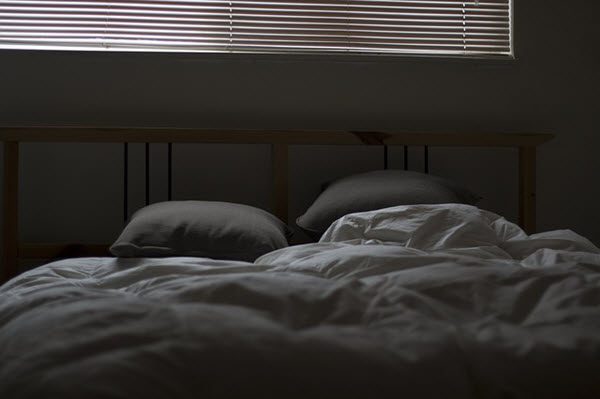Getting a good night’s sleep is critical to your mental and physical well-being. Few things are more frustrating than when you lay down, and you simply can’t go to sleep. We’re going outline several common but surprising reasons why you can’t sleep below.
You Have Blue-Light Insomnia
Experts (and maybe even your family) has repeated time and time again to turn off the electronics before you go to bed. If you don’t, you could fall victim to blue-light insomnia. Your electronic devices emit a blue light when you turn them on, and this could suppress your natural melatonin production. The bad news is, this can delay it even if you turn off your device three hours before bed. You can negate this by buying a pair of glasses that come specially designed to block blue light.
See Also: Preventing Blue Light-Related Health Problems
You Have an Old Mattress

Ideally, you should consider replacing your mattress every 10 or 15 years at the maximum. Not having a comfortable mattress can make it difficult for you to get comfortable enough to drift off to sleep. This is often a silent culprit as we get so used to our old lumpy beds.
With the sheer variety of mattresses available to buy, you can pick out a mattress that is firm or soft enough to suit your needs. This can help you fall asleep quickly, not toss and turn, and wake up feeling refreshed and ready to take on the day.
See Also: 3 Negative Effects of Bad Mattresses You Need To Be Aware Of
You Had a Drink (or Two) Before Bed
Unfortunately for people who like to have a drink or two before bed, alcohol can induce insomnia and make it difficult for you to stay asleep. Alcohol can cause a rebound effect and result in a more fragmented and lighter sleeping pattern. You’ll want to limit your alcohol intake and stop drinking around three hours before you go to bed.
You Take Prescription Medications
Do you take diuretics for your blood pressure? If so, they can make you have to get up and go to the bathroom more during the night. If you take antidepressants, they can give you a boost of energy that keeps you up hours past your bedtime. Schedule a visit with your doctor and ask them for the best times to take your prescriptions. Make sure that these times don’t interfere with your sleep schedule.
You Routinely Take Naps
It’s natural for your energy levels to fall between two and three in the afternoon. This is when you experience the afternoon slump where all you want to do is nap. If you give in to the temptation and take a short nap, this can throw your sleep schedule off. If this sounds like you, try to schedule a little physical activity from two and three. Not only will you feel more energized, but it’ll wear you out for bedtime.
You Unknowingly Had Caffeine
When you think of caffeine, coffee or soda are usually the two main things that come to mind. However, caffeine is in a lot of everyday foods and beverages that people don’t even realize. For example, chocolate and iced tea contain levels of caffeine. If you think this is why you can’t fall asleep, try cutting it out after you eat your lunch.
You’re Going Through Menopause
Menopause can wreak havoc on your entire body, and it can cause mental and physical problems. Nearly a quarter of women who are menopausal experience hot flashes. Waking up hot and sweaty is an unpleasant experience for anyone, and it can be hard to go back to sleep. Although it may not be feasible to stop your hot flashes, you can use a buckwheat pillow and sheets that wick moisture away.
You Have Poor Sleep Habits
Poor sleep habits can make it difficult to fall asleep, stay asleep, and wake up feeling happy and refreshed. Maybe you don’t have a set bedtime, or you prefer nights to mornings. You can improve your sleep habits by setting a bedtime and sticking to it, cutting caffeine out in the early afternoon, wearing blue light glasses at night, and giving yourself some quiet time before bed to unwind.
You Sleep In On The Weekends
Yes, sleeping in on Saturdays and Sundays can feel amazing when you do it. However, it can throw your biological rhythm off. This can make it challenging to fall asleep Sunday night, and you can ruin your sleep schedule for the entire week. Instead of sleeping in, set your alarm for around the same time that you normally get up. You might hit the snooze button a few times, but you’ll feel better come Monday morning.
You Sleep With Your Pets
Lots of people like to have their pets in their beds when they go to sleep. However, this can cause problems if you have an allergy or sensitivity to pet dander. Also, animals tend to be more active and move around during the night. If they’re in bed with you, they could disturb your sleep every time they move.
Your Pillow Gets Too Hot
Sleeping on a cool pillow can actually work to lower your core body temperature. As your body temperature drops, you’ll start to feel groggy. This can help you fall asleep much faster than you traditionally would, and you may even stay asleep longer. You can get a special cooling pillow or add an ice pack to your pillow.